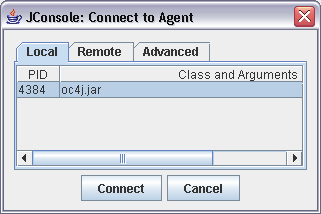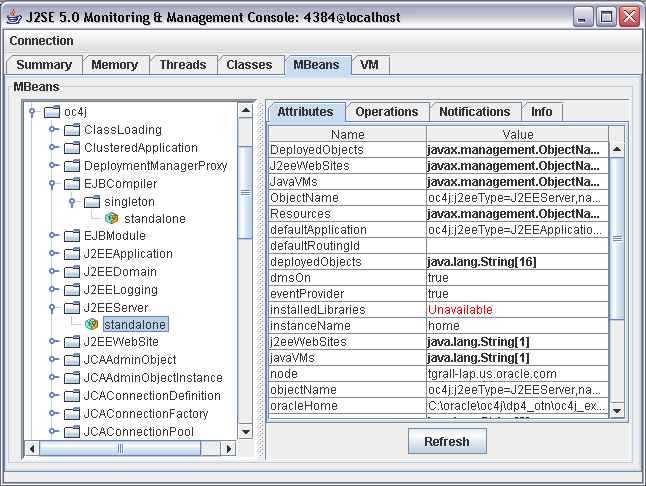OC4J 10g (10.1.3) is a J2EE 1.4 containers, so as part of the specifications, it supports JMX for management and deployment. One of the benefits of JMX is the fact that finally Java applications, and in our case the J2EE containers, have a standard based interface to be administered. OC4J exposes using its MBean Server system and application lever management beans (MBeans) that you can monitor and control from the Oracle Application Server Control (ASC) that is pre-deployed; but you can use any JMX client application. Sun has included as part of Java 5 JMX but also provides a standard JMX client called JConsole. This post is simply explaining how you can use the Sun's JConsole with OC4J.
- Set the environment:
$ORACLE_HOME to the OC4J home
$JAVA_HOME your JDK home
- Start the OC4J with the following property set
$JAVA_HOME/bin/java -Dcom.sun.management.jmxremote -jar oc4j.jar
The -Dcom.sun.management.jmxremote system property creates an RMI connector to the MBeanServer, we will use this RMI connector from the console iself.
- Start the JConsole, with the following command, adding the OC4J administration class to the classpath.
$JAVA_HOME/bin/jconsole -J-Djava.class.path=$JAVA_HOME/lib/jconsole.jar:$JAVA_HOME/lib/tools.jar;$ORACLE_HOME/lib/adminclient.jar
- The console will automatically ask you to connect to the OC4J process and you can start to monitor and administer your OC4J instance

Connection to the OC4J MBean Server

Java 5 JConsole browsing the OC4J MBeans